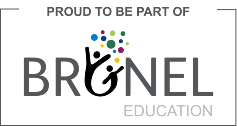Anti-Bullying Statement
Anti-bullying Strategy Statement
At Short Breaks we recognise that bullying happens, and it could happen here. Bullying is not acceptable, no matter what form it takes, and we will address concerns as they arise. The negative impact of bullying can be lifelong, and we need to do everything we can to protect our children and young people.
To help our children and young people understand what bullying is, why it shouldn’t happen and how to deal with situations of bullying as they arise, we believe we need to educate them well. They need to know what the different types of bullying are and be confident in reporting their concerns to employees and know that their concerns will be heard and acted upon. In turn our employees need to know what to do when a child and young person raises a concern and how to report it so that appropriate help and support can be provided to the child or young person.
We also, as an organisation, need to understand the scale of the problem in our setting, the nature of any bullying that occurs and have in place an agreed approach to dealing with it which is deeply understood.
How we find out the scale of the issues and monitor bullying
We draw together information from our reporting systems fortnightly This allows us to understand what the nature of the bullying is, who is doing it and the severity of the concern.
Our reporting system; CPOMs, is a vehicle for all employees to record concerns as they arise, and they are trained to do so at induction and through ongoing refresher training.
Should comments related to bullying be seen through our reporting mechanism, leaders will address this as a Safeguarding Team (Designated Safeguarding Lead and Deputies in consultation with the Trust Safeguarding Lead when appropriate).
Reporting and Oversight
Leaders reflect on all safeguarding and bullying matters routinely in their leadership and safeguarding meetings. The Anti-bullying Strategy Statement is an accompanying statement to go alongside the Behaviour policy.

